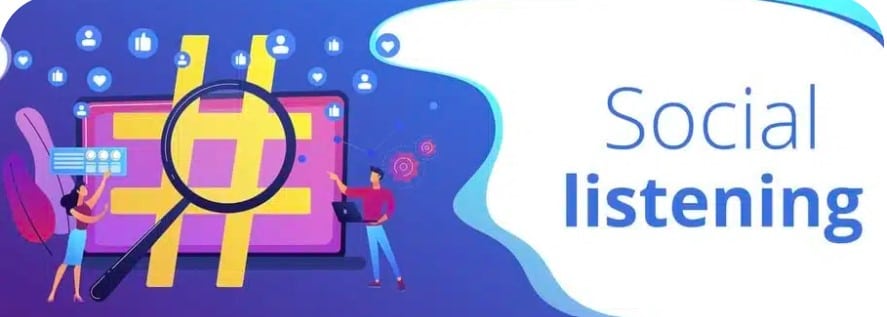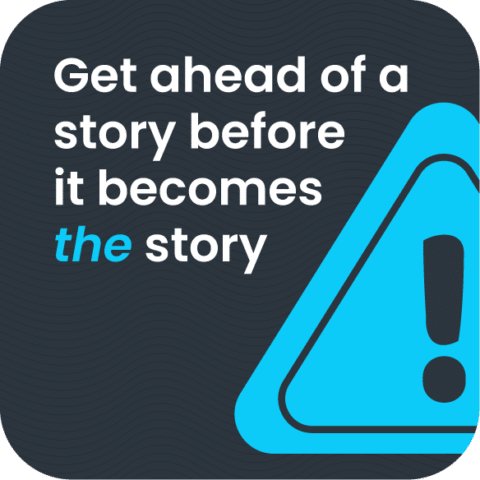Public relations is no longer limited to TV and newspapers, it now involves real-time online communication and connections. Brands today must listen to consumers rather than merely speak at them. Millions of discussions occur every day on review sites, blogs, forums, and social media, and it’s critical for communicators to know what they’re saying.
Tracking these conversations about your company, your competitors, and the market is more important than simply keeping an eye out for brand mentions. Social listening is the tool every PR team needs, whether they are preparing for a potential crisis situation, creating a new campaign, or safeguarding the reputation of their brand.
The following are five solid reasons why social listening is essential to successful PR:
1. You Can Accurately Measure Public Sentiment
PR pros may use social listening technologies to learn more than just mentions of their brand; they can also learn how people feel about it. Are the remarks neutral, critical, or positive? Is your new product being praised by customers, or are they grumbling about the customer service?
Real-time sentiment measurement allows you to:
- Monitor comments about campaigns, press releases, and brand announcements.
- Determine the emotional causes that affect how people perceive your brand
- Modify messaging in response to actual audience reaction.
Why it matters: Public relations is all about controlling perception. You’re working blind if you don’t understand the true feelings of your audience. You can get the real-time emotional pulse of your market with social listening.
2. You Can Spot PR Crises Before They Escalate
Early crisis identification is one of the most important applications of social listening. A crisis frequently begins with a tweet, a comment, or a trending hashtag rather than a headline.
Social listening platforms can:
- Alert you to increases in unfavorable mentions.
- Keep tabs on any new complaints or keywords.
- Show how brand sentiment has changed across platforms.
For example: In just a few hours, a single tweet regarding a faulty product might become widely shared. Your PR team can identify it early, take swift action, and manage the narrative before it spreads by using social listening.
Why it matters: Timing is critical when it comes to crisis public relations. Social listening allows you to react swiftly and strategically when your brand’s reputation is at stake.
3. You’ll Be Able to Understand Your Audience Like Never Before
Having interactions is more important for effective PR than merely spreading a message. You need to know your audience well enough to know their hobbies, patterns, and things that annoy or excite them in order to accomplish that.
Social listening offers important information about:
- Consumer values and preferences.
- Your target audience’s language and tone.
- Demographic and regional trends.
Why this matters: Your audience’s voice and interests will be reflected in your PR strategy, strengthening brand loyalty and emotional bonds.
4. You’ll Be Able to Monitor Competitors and Industry Trends
It’s not just about your brand when it comes to social listening. It’s also an effective tool for monitoring developments in your industry and among your rivals.
You can find out
- What people are saying about your rivals.
- The performance of competing campaigns.
- Customer feedback and reactions to new products.
You can use this competitive insight to:
- Gain knowledge from the mistakes or achievements of others.
- Identify areas for innovation and market gaps.
- Put your brand in a better position.
Why it matters: Being creative isn’t enough for great PR; you also need to stand out. Social listening aids in identifying distinct advantages.
5. You Can Create More Impactful PR Campaigns
Social listening lets you create data-driven campaigns rather than speculating about what could resonate. You’ll learn what interests your audience, what subjects are popular, and which channels generate the most interaction.
You can find out:
- Create compelling story ideas for media pitches.
- Select the appropriate brand ambassadors or influencers.
- Adapt PR material to the timing and interests of your target audience.
For example: You can modify your PR approach to emphasize your brand’s eco-friendly actions if you observe an increasing online conversation about sustainability in fashion. This will make your messaging more relevant and timely.
Why it matters: Real discussions and audience insights support PR campaigns, which are more genuine, successful, and likely to go viral.
Conclusion
Making meaningful connections is more important for PR success than simply creating messages. Being able to listen strategically has become a real competitive advantage at a time when brand conversations take place on digital platforms around the clock. AI-powered social listening helps you maintain your brand’s credibility, relevance, and connection by transforming PR into a two-way conversation rather than a one-way messaging firm. Prioritize listening over speaking if you want your public relations strategy to stand out in a crowded field.




